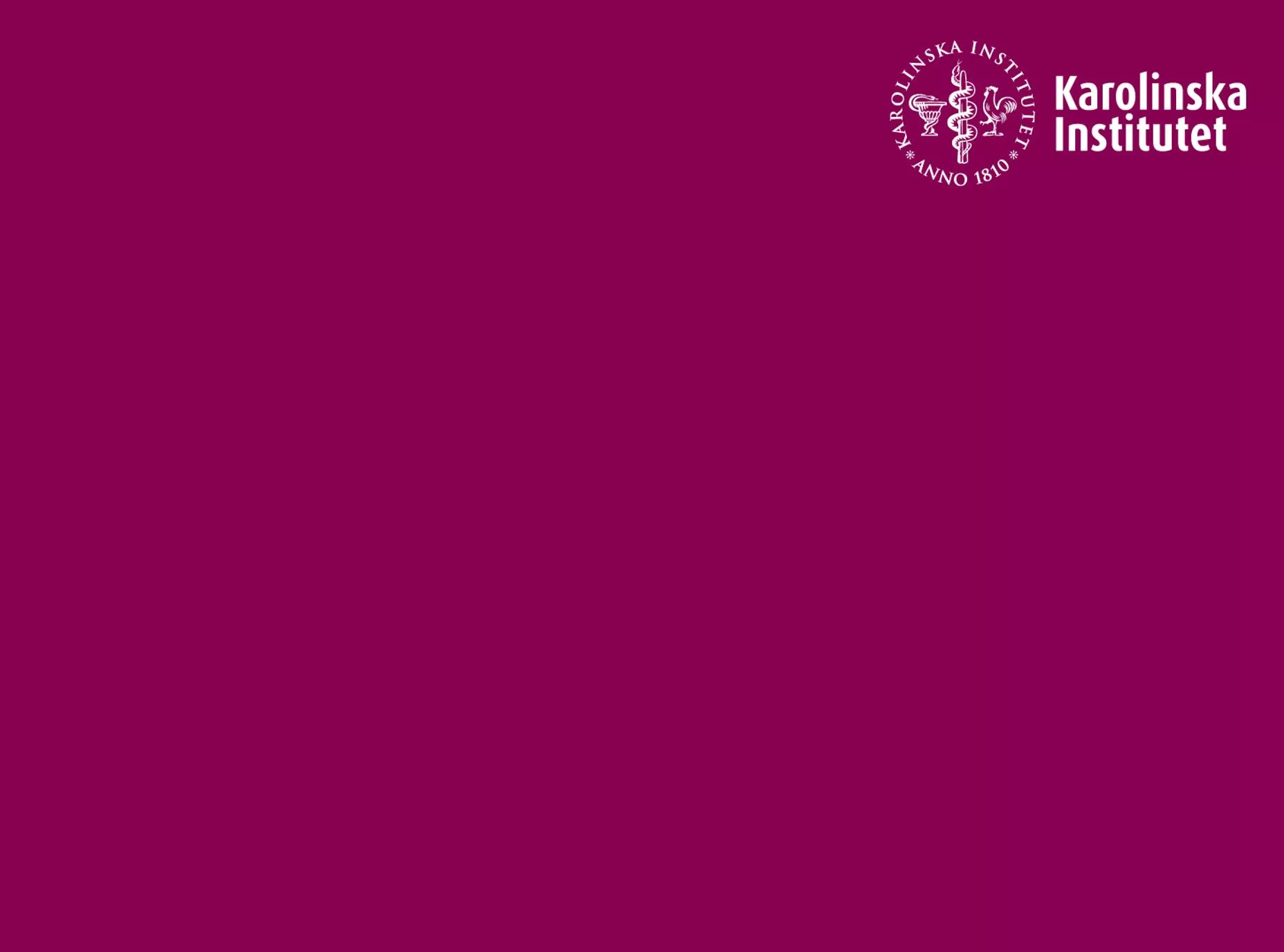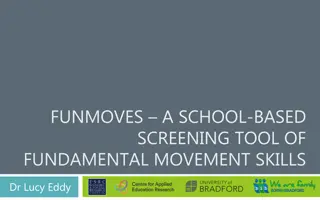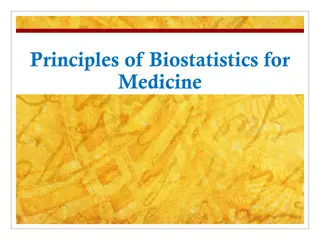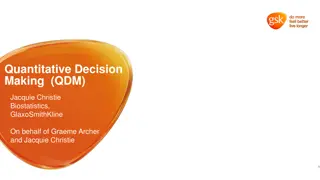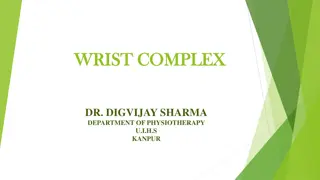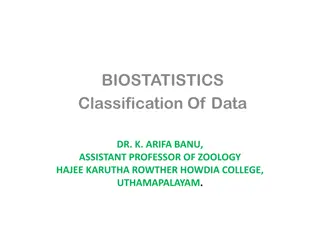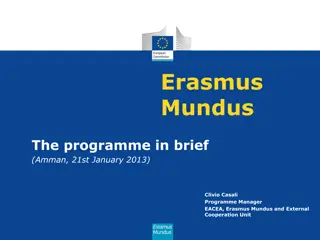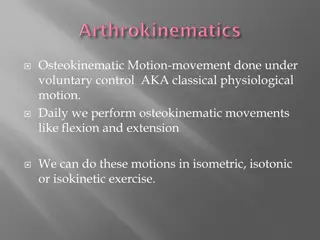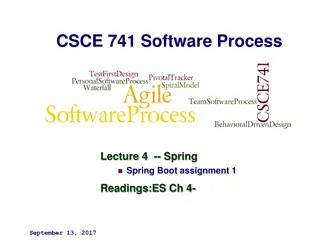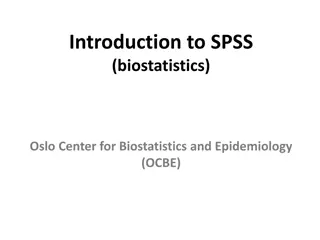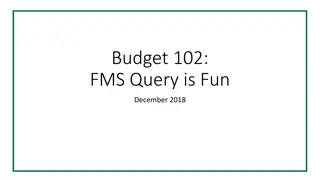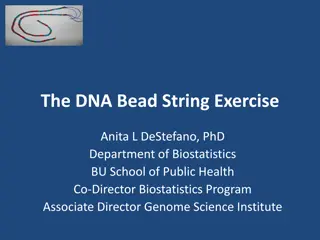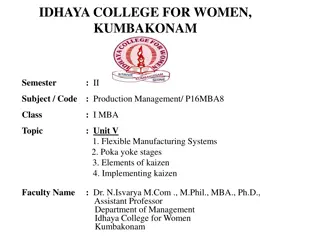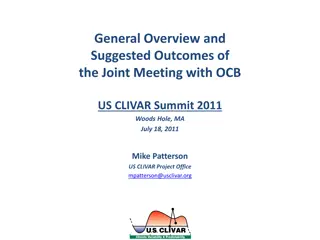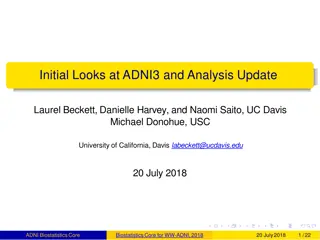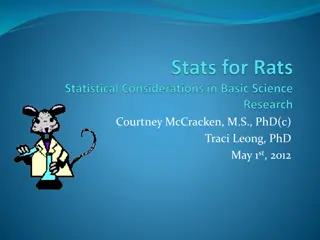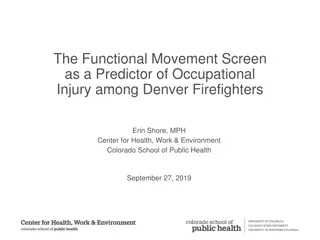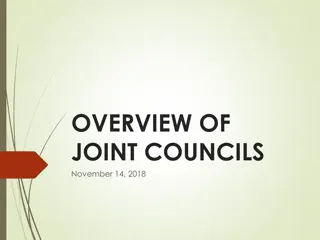Proposal for Joint Master's Programme in Biostatistics and Data Science at FMS Spring Meeting
This proposal outlines the creation of a 120-credit joint Master's programme in biostatistics and data science to address the lack of such a programme in Sweden. Developed by a committee from Karolinska Institutet, KTH, and Stockholm University, the programme aims to start in HT2024 with a focus on training biostatisticians for diverse sectors. The curriculum includes core courses in statistical theory, elective courses in modern statistical methods and machine learning, and a thesis project. Paul Dickman presented this comprehensive plan at the FMS Spring Meeting on March 30, 2023.
Download Presentation

Please find below an Image/Link to download the presentation.
The content on the website is provided AS IS for your information and personal use only. It may not be sold, licensed, or shared on other websites without obtaining consent from the author. Download presentation by click this link. If you encounter any issues during the download, it is possible that the publisher has removed the file from their server.
E N D
Presentation Transcript
Proposal for joint masters programme in biostatistics and data science FMS Spring meeting 30 March 2023 Paul Dickman, Karolinska Institutet On behalf of the program committee
Background and motivation for new program Sweden currently lacks a master's program in biostatistics or medical statistics, despite heavy need for trained biostatisticians in academia, government, and private sectors. [New program at GU?] We propose a 120 credit (2 year full-time) master s program in biostatistics and data science to be run jointly within Stockholm Trio (KI/SU/KTH). Current status: Program established earlier this month at KI and KTH; decision planned at SU today. Current time plan is that first students will commence HT2024. Advertise August 2023. Aiming initially for 30 students; Sweden, EU, and Non-EU. Paul Dickman 02/04/2024 2
Programme committee who have developed the proposal KI: Paul Dickman and Therese Andersson KTH: Henrik Hult and Joakim Jald n SU: Tom Britton and Filip Lindskog Student: Martin Bj rklund (SU) and Martin St hl (KI) Paul Dickman 02/04/2024 3
Program overview r 1 HT VT SF2955 Datorintensiva metoder inom matematisk statistik (7,5) verlevnadsanalys med till mpningar i medicin (7,5) SF2940 Sannolikhetsteori (7,5) Biostatistik I (7.5) MT5003 Statistisk inferensteori (7,5) MT5006 Analys av kategoridata (7,5) Valbara kurser (7,5) Valbara kurser (7,5) r 2 HT VT Studiedesign och analys i medicinsk forskning (7,5) Biostatistik II (7.5) Examensarbetet (30) Valbara kurser (7,5) Valbara kurser (7,5) KI (plum); KTH (apricot); SU (Blue) Paul Dickman 02/04/2024 4
Elective courses (all courses 7.5 credits) One and only one of these must be taken KTH: SF2935 Modern methods in statistical learning (H1) KTH: DD2421 Machine learning (H1) SU: MT7038 Statistical learning (H2) Paul Dickman 02/04/2024 5
Elective courses (7.5 credits) KTH DD2434 Machine learning, advanced course (H2) KTH SF2957 Statistical Machine Learning (H2) KTH SF2956 Topological Data Analysis (H1) KTH SF2943 Time Series Analysis (V2) KTH SF2930 Regression analysis (V1) KTH SF2526 Numerical algorithms for data intensive science (V1) SU MT7039 Statistical unsupervised learning (V1 2 av 3 r) SU MT7042 Statistical aspects of deep learning (V1 2 av 3 r) SU MT7002 Statistical models (V2) SU MT4007 Statistisk databehandling (H2) SU MT7003 Bayesiansk statistik (H1 udda r) SU MT7037 Statistical information theory (V1) SU MT7006 Survival analysis (H1 j mna r) SU MT3002 Mathematics and statistics for infectious disease outbreaks (H2) [Kan eventuellt ges vartannat r om intresse finns] KTH EQ2341 Pattern recognition and machine learning Paul Dickman 02/04/2024 6
Program prerequisites A bachelors degree. F r s rskild beh righet g ller: Den s kande ska ha l st sammanlagt minst 60 hp i matematik, statistik, och programmering varav analys i en och flera variabler, linj r algebra, numeriska metoder, sannolikhetsteori och statistik samt programmering med ett h gniv spr k ska ing . The applicant must have studied at least 60 credits (in total) in mathematics, statistics, and programming, of which univariate calculus, multivariable calculus, linear algebra, numerical methods, probability theory and statistics, and programming with a high-level language must be included. Paul Dickman 02/04/2024 7
Target audience and motivation for joint programme Initially 30 students (with strong math/stat) from Sweden, EU, and non-EU (fee-paying) in approximately equal parts. Many Swedish international masters programs have struggled to recruit Swedish students. Program will be mapped to masters in civil engineering (KTH). Important that the program is anchored in a medical faculty. SU is especially strong in mathematical statistics and hosts professors expert in, among other topics, infectious disease modelling and population genetics. KTH is especially strong in mathematical statistics, bioinformatics, computationally intensive statistics, image analysis, and machine learning. SU and KTH already offer master s level courses to students with a maths background, whereas KI does not. Paul Dickman 02/04/2024 8
Strengths of the proposal Strong enthusiasm from researchers at all three participating universities to establish and contribute to a program. The program will be anchored in departments with strong research programs, both in theory and applications. Strong connection to biomedical research, in both academia and industry. Fees (for fee-paying students) are relatively low compared to similar in-person programs in other countries. The program will increase collaboration in research and teaching within the Stockholm Trio. Establishment of a master s program will promote further development of, for example, doctoral education in biostatistics and professional development opportunities for biostatisticians. Paul Dickman 02/04/2024 9
Final thoughts I hope this will not be the only Swedish masters programme in biostatistics. Potential to develop elective courses in biostatistics and related areas; opportunities for collaboration with other programs (including outside Stockholm). Time to market our discipline; to undergrad but especially upper secondary students. Collaboration with FMS vision group. Paul Dickman 02/04/2024 10
forskarfredag.se Paul Dickman 02/04/2024 11
Paul Dickman 02/04/2024 12
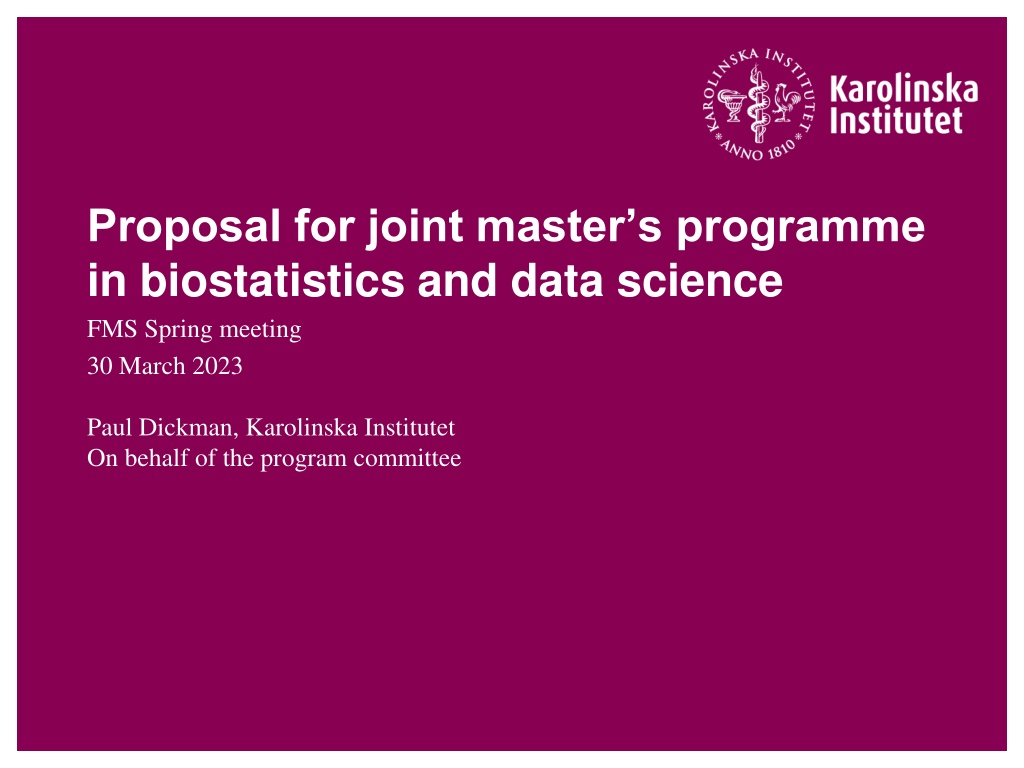
 undefined
undefined